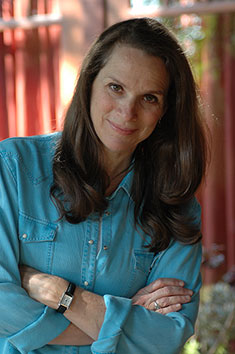In Hollywood’s Golden Age, when every actor was under contract with a major studio, “casting” simply meant scouring the roster for warm bodies on the lot—bit players, extras, even the stars. The process, performed by a studio scout who went uncredited in the film’s end titles, might last as long as 20 minutes. Negotiation was nonexistent, since the studio owned the talent.
 It wasn’t until the studio system collapsed in the early 1960s, when power shifted to the stars and their agents, that modern casting was born. Television was competing with film for top actors, who now sought their breaks not from moguls but from newly evolved independent casting directors. Whereas studio talent scouts once might have rounded up dozens of Technicolor clones for a role, casting now favored variety over numbers and suited young auteur filmmakers like Martin Scorsese and Francis Ford Coppola, who preferred gritty realism to pretty faces. Casting directors combed everything from off-off-Broadway flops to Ivy League drama clubs in search of unknowns. Al Pacino and Meryl Streep were discovered on the New York stage; more recently, Cuba Gooding Jr. first gained attention in a theater production at Hollywood High School.
It wasn’t until the studio system collapsed in the early 1960s, when power shifted to the stars and their agents, that modern casting was born. Television was competing with film for top actors, who now sought their breaks not from moguls but from newly evolved independent casting directors. Whereas studio talent scouts once might have rounded up dozens of Technicolor clones for a role, casting now favored variety over numbers and suited young auteur filmmakers like Martin Scorsese and Francis Ford Coppola, who preferred gritty realism to pretty faces. Casting directors combed everything from off-off-Broadway flops to Ivy League drama clubs in search of unknowns. Al Pacino and Meryl Streep were discovered on the New York stage; more recently, Cuba Gooding Jr. first gained attention in a theater production at Hollywood High School.
While the studio talent scouts of the 1950s mostly were men, casting is now the only Hollywood profession controlled by women—and, as such, is derided in the Industry as the “pink ghetto.” “It’s something women were allowed to do in this business,” says Mary Buck, president of the Casting Society of America. “It was a way to get in, a way to get started.” Many of the early casting directors were former studio secretaries. Marion Dougherty, the field’s undisputed grande dame, who started out answering the phone at an ad firm and later got a young, unknown Warren Beatty a spot on Kraft Television Theater, set up the first independent agency in 1964. The assistants she trained, like Juliet Taylor and Wally Nicita, rose to the top of the profession as well. “I think it’s a maternal thing,” says Carrie Frazier, head of casting at HBO Films. “A lot of this job is about nurturing the director —getting inside his head.” “Women are more efficient and conscientious even if men talk a good story,” adds Warner Bros. casting doyenne Barbara Miller. Or, as Levitt puts it, “This is a hand-holding job. It’s primarily a female position because you’re taking care of men.”
Another reason simply might be financial. “It’s cheap employment,” says veteran Jane Jenkins: Casting directors earn about a third the salary of movie directors and a tenth the income of even moderately well-known stars. No wonder some of them feel permanently unappreciated. “You have to love actors,” says another of Levitt’s colleagues, “and a lot of casting directors don’t.”
The job itself is a never-ending cycle of concession, disadvantage, and rejection. In the case of Elysian, the odds of securing A-list favorites are clearly stacked against Levitt—low budget, unproven director, no distribution deal yet—when she phones the agent of Annette Bening about the role of Andrea, the frustrated wife who seeks out a gigolo. Beyond foreign market concerns (Bening is hot in both Europe and Asia) and the whims of Andy Garcia (he likes her), there’s now an issue of time. Levitt might easily have to wait several days, even weeks, for a response from the actress only to receive a firm no. With just three weeks until shooting begins, that could mean last-minute scrambling and ugly compromises.
“Hey, it’s Heidi Levitt calling for Kevin Huvane,” she says into the receiver. Having cast a half-dozen supporting roles for the film, she is now trying to nudge Bening to read the script. Bening’s fee is in the multimillion-dollar range; Levitt is offering her a skimpy $100,000 per week.
Though the part is written for a younger woman, Levitt is convinced that Bening should play Andrea, whom the script describes as having “the face of an angel.” Levitt rarely pays attention to character description and often “flips” her choices—a black actor for a white role, an old policeman for a young one—a key element of creative casting that good film directors cherish. Levitt is also practical: Bening has a baby and would presumably want to work close to home (the film shoots in L.A., and the job only lasts ten days). Plus, she reasons, it’s a sexy role, and there just aren’t many projects like this for women in their forties.
After a quick exchange, she hangs up the phone. “So, Annette is supposed to talk with her agents at 12:30, and we’ll hear then,” she says, sounding giddy from this scrap of information. Bening’s agents have assured Levitt that the script and a personal note from her have been forwarded. Whether Bening has received or read either is impossible to know for certain.
“I’m sure she’s thinking about it,” Levitt says, “because otherwise we’d get a negative.”
Were she to cast a movie version of herself, Levitt says she would reach back and pluck Myrna Loy from her Thin Man heyday—but, frankly, Julie Harris’s look in East of Eden is probably more fitting. Dressed one day in a red blouse with gold-ribboned sleeves, green army fatigues, and red clogs with flowers on the soles, she appears pixielike. Her feathery blond hair is pulled back by a fake-pearl headband.
On the wall of her office Levitt keeps a framed portrait of a middle-aged woman in pearls. It is her maternal grandmother, who introduced her to New York theater when she was a child. Born in Montreal, where her parents still run a printing company, Levitt moved to New York to attend Barnard College and go to plays. She interned at Circle Rep Theater and the Ensemble Studio and worked with casting directors Billy Hopkins and Risa Bramon Garcia. After graduating in 1984, she became their full-time assistant, then their associate, and eventually their partner.
“The first big movie I got the chance to work on was Angel Heart, because Billy and Risa were working with Alan Parker,” she recalls. “He was quite demanding and cared about every nonspeaking role as well. I went on the road looking for blues musicians for him. I was 'Have Polaroid, Will Travel.’ ”
In 1987, Levitt moved to L.A. with her then boyfriend (now husband), Charlie, to attend the producers program at the American Film Institute. While there, she cowrote and produced a short film, Delivering Milo, the story of a boy who’s afraid to be born, which last year became a $10 million feature with Albert Finney and Bridget Fonda. Unfortunately, she learned the hard way that most independent films are never distributed: Delivering Milo has yet to be released.
After AFI, Levitt returned to casting. She was nominated for an Artios in 1992 for her work with Bramon Garcia and Hopkins on JFK, shared one with Bramon Garcia for The Joy Luck Club in 1994, and was nominated again in 1996, alone this time, for Nixon. Despite the recognition, getting work isn’t a certainty. She casts about three movies a year, but there can be long stretches of downtime. Levitt also casts theater productions for the American Conservatory Theater in Seattle and for the La Jolla Playhouse.
Some casting directors use the job as a path to producing, and Levitt would like to do this as well. She’s begun to compile producing credits by packaging talent for some small movies, like The Fourth Angel and the upcoming Wayne Wang project Center of the World. Many casting directors are former actors; Levitt entertains fantasies about performing. In college she appeared in some school plays, and she still loves reading with actors. “When I’m old,” she says, a little dreamily, “I’d like to be a character actress, maybe.”
Levitt knows thousands of actors by face and name and can consider most of them for a particular role without so much as a head shot or a phone call. In fact, Levitt has a stable of actors she calls upon over and over, including Tracy Walter and James Karen. Rosalind Chao, whom she cast in key roles in The Joy Luck Club and What Dreams May Come, was also tapped for a tiny part in The Man from Elysian Fields. Why did she agree to take such a small role—a bookstore customer in a scene with Andy Garcia? “You go up for it because it’s Heidi,” Chao explains. “She’s considered a classy casting director, so people will go in for stuff they wouldn’t ordinarily audition for. She makes it easy for you to do your best reading for directors because she’s briefed them on what you’ve done. She doesn’t stick you in a room with a bunch of people who look just like you, only better.”



